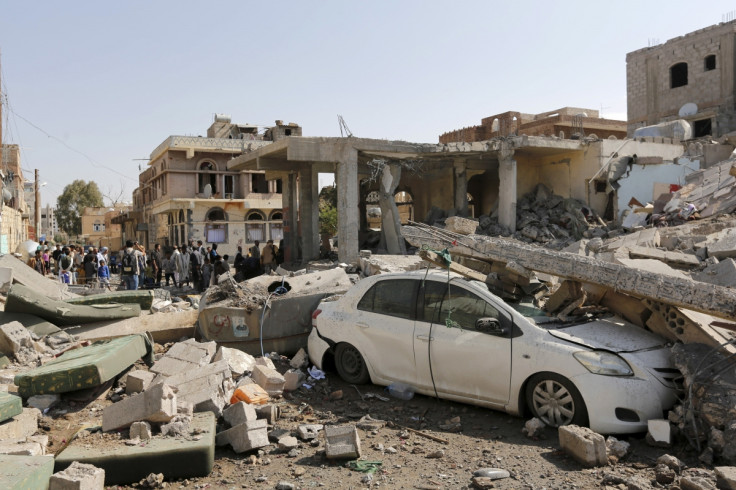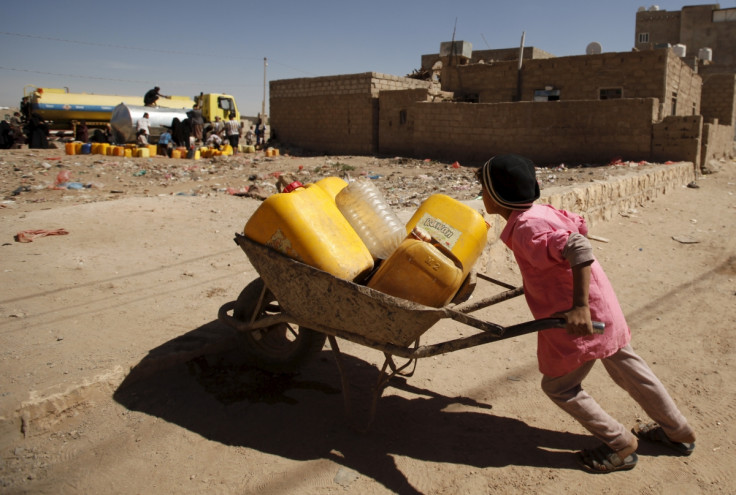Yemen conflict: Saudi Arabia-led coalition accused of targeting civilians by UN

A UN panel says the Saudi-led coalition's "indiscriminate" air strikes and shelling of Yemen could constitute serious human rights abuses and called for a fresh international inquiry into the conflict.
In its annual report to the UN Security Council that was leaked to media outlets, the panel said it had documented 119 sorties "relating to violations of international humanitarian law" that had led to civilian casualties.
It accused coalition forces of targeting civilians in a "widespread and systematic" manner and using starvation as a form of warfare in the impoverished nation.
Riyadh has been leading a coalition of nine Arab states in a bombing campaign against Houthi forces loyal to former Yemeni president Ali Abdullah Saleh since March 2015.
Nearly 6,000 people have been killed by the fighting and some 80% of the Yemeni population are in need of some kind of humanitarian assistance, according to the UN.
Deteriorating situation
"The panel has noted that civilians are disproportionately affected by the conduct of hostilities owing to the widespread and systematic use of tactics that practicably, and in certain cases directly, constitute the prohibited use of starvation as a method of warfare," the report, seen by Al Jazeera, says.
Refugee camps, weddings, residential areas, medical facilities, schools, mosques, markets and factories were among the targets of coalition sorties, according to the report.
"The panel also documented three alleged cases of civilians fleeing residential bombings and being chased and shot at by helicopters."

The report also accused Houthi rebel forces of violating international law by placing themselves in residential areas and recruiting minors as soldiers.
"Beyond the widespread and systematic use of indiscriminate air strikes and shelling, and an increase in child recruitment, the blockade of commercial goods entering the country and the siege of Taiz have limited not only the ability of hospitals and humanitarian actors to operate and respond to the situation, but also the ability of people to be able to sustain themselves," it stated.
The UN experts, who compiled the report by examining satellite imagery as they were barred entry into Yemen, urged the UN Security Council to set up an inquiry into a range of human rights abuses in the country.
A Saudi analyst rejected the report's findings, telling the Guardian newspaper that they were "largely based on hearsay".
© Copyright IBTimes 2024. All rights reserved.






